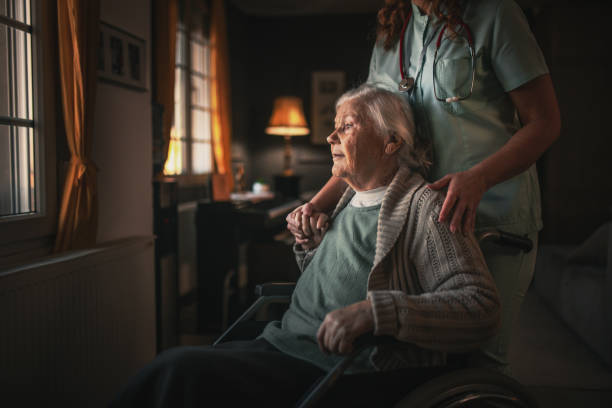As the population ages, the demand for personalized, high-quality senior care has grown significantly. Among the many care options available, skilled nursing at home has emerged as a preferred solution for families seeking comprehensive medical support while allowing their loved ones to remain in familiar surroundings. This approach combines professional healthcare services with the comfort and convenience of home, addressing both medical and emotional needs.
Contents
What is Skilled Nursing at Home?
Skilled nursing at home refers to professional healthcare services provided by licensed nurses directly in the patient’s residence. These services extend far beyond basic caregiving, focusing on clinical needs such as medication management, wound care, rehabilitation support, chronic disease management, and post-hospitalization care. Unlike home health aides who provide assistance with daily living activities, skilled nurses have medical training and certifications, allowing them to provide specialized care.
This type of care is particularly beneficial for seniors with complex medical conditions, such as diabetes, heart disease, respiratory illnesses, or those recovering from surgeries. It ensures that seniors receive expert attention without the need for prolonged stays in hospitals or nursing facilities.
The Benefits of Skilled Nursing at Home

The greatest advantage of skilled nursing at home is its ability to provide personalized, one-on-one care. In institutional settings, nurses often attend to multiple patients at once, limiting the time spent with each individual. At home, the nurse can focus solely on the senior, tailoring care plans to their specific health requirements and preferences.
Moreover, familiar surroundings contribute significantly to emotional well-being. Seniors tend to experience less stress and anxiety when they remain in their own homes, surrounded by familiar objects, routines, and family members. This sense of comfort can positively influence their recovery and overall quality of life.
In addition to personalized attention and emotional benefits, skilled nursing at home can also be a cost-effective alternative to long-term facility care. While nursing homes and rehabilitation centers offer comprehensive services, they come with high monthly fees that may strain family finances. By opting for home-based care, families can customize the level of support their loved one receives, scaling it up or down based on evolving needs and budgets.
Comprehensive Services Delivered at Home
Skilled nursing at home covers a wide range of medical services, ensuring that seniors receive comprehensive care tailored to their conditions. Some of the most common services include:
- Medication Management: Ensuring proper dosage, managing potential side effects, and preventing harmful drug interactions.
- Wound Care: Addressing surgical wounds, pressure ulcers, or injuries to prevent infection and promote healing.
- Chronic Disease Management: Monitoring and managing conditions such as diabetes, hypertension, and heart failure to prevent complications.
- Rehabilitation Support: Assisting with physical therapy exercises and post-surgical recovery plans prescribed by healthcare providers.
- Monitoring Vital Signs: Regularly checking blood pressure, oxygen levels, glucose, and other key health indicators to catch potential issues early.
- Nutritional Guidance: Collaborating with dietitians to ensure proper nutrition that supports health goals.
- Care Coordination: Communicating with physicians, specialists, and family members to ensure seamless, holistic care.
Supporting Family Caregivers
In many cases, family members serve as primary caregivers for aging relatives. While this arrangement can foster close bonds, it also comes with significant challenges, including caregiver burnout. Skilled nursing at home provides critical relief for family caregivers, ensuring their loved one’s clinical needs are met by trained professionals. This allows family members to focus on providing emotional support, maintaining their own well-being, and preserving healthy family dynamics.
Furthermore, skilled nurses often act as educators and advisors, guiding family members on best practices for ongoing care. Whether teaching proper techniques for administering medications or demonstrating safe transfer methods, their expertise empowers families to feel more confident in their caregiving roles.
Technology Enhances Home Nursing
Advancements in healthcare technology have further strengthened the value of skilled nursing at home. Many home care agencies utilize telehealth tools, allowing nurses to consult with physicians in real time, access electronic health records, and monitor patients remotely through wearable devices. This integration of technology ensures that seniors receive responsive care even when the nurse is not physically present.
Telehealth also enhances collaboration among all members of the senior’s healthcare team, fostering faster decision-making and more proactive care adjustments. This technology-driven approach ensures that skilled nursing at home remains adaptable, evolving alongside medical advancements and individual health changes.
Choosing the Right Skilled Nursing Provider
Selecting a skilled nursing provider is a crucial decision that impacts the quality of care a senior receives. Families should look for agencies that employ licensed, experienced nurses with strong backgrounds in geriatric care. Accreditation from reputable healthcare organizations and positive client testimonials further indicate the agency’s commitment to high standards.
It is equally important to ensure the provider offers flexibility in care plans, allowing families to adjust service frequency and intensity as the senior’s condition evolves. Transparency in pricing and clear communication channels between the agency, family, and healthcare providers are also essential for building trust and ensuring seamless care.
A Future Focused on Personalized Senior Care
As healthcare increasingly shifts toward patient-centered models, skilled nursing at home exemplifies this evolution. By merging clinical expertise with compassionate, personalized care, it empowers seniors to age in place with dignity while receiving the medical attention they need. For families seeking a balanced approach to senior care—one that values health, comfort, and independence—skilled nursing at home offers an innovative and compassionate solution.
Ultimately, comprehensive care does not always require institutional settings. With the right skilled nursing provider, seniors can enjoy high-quality, medical-grade care in the comfort of their own homes, ensuring health, happiness, and dignity throughout their aging journey.

